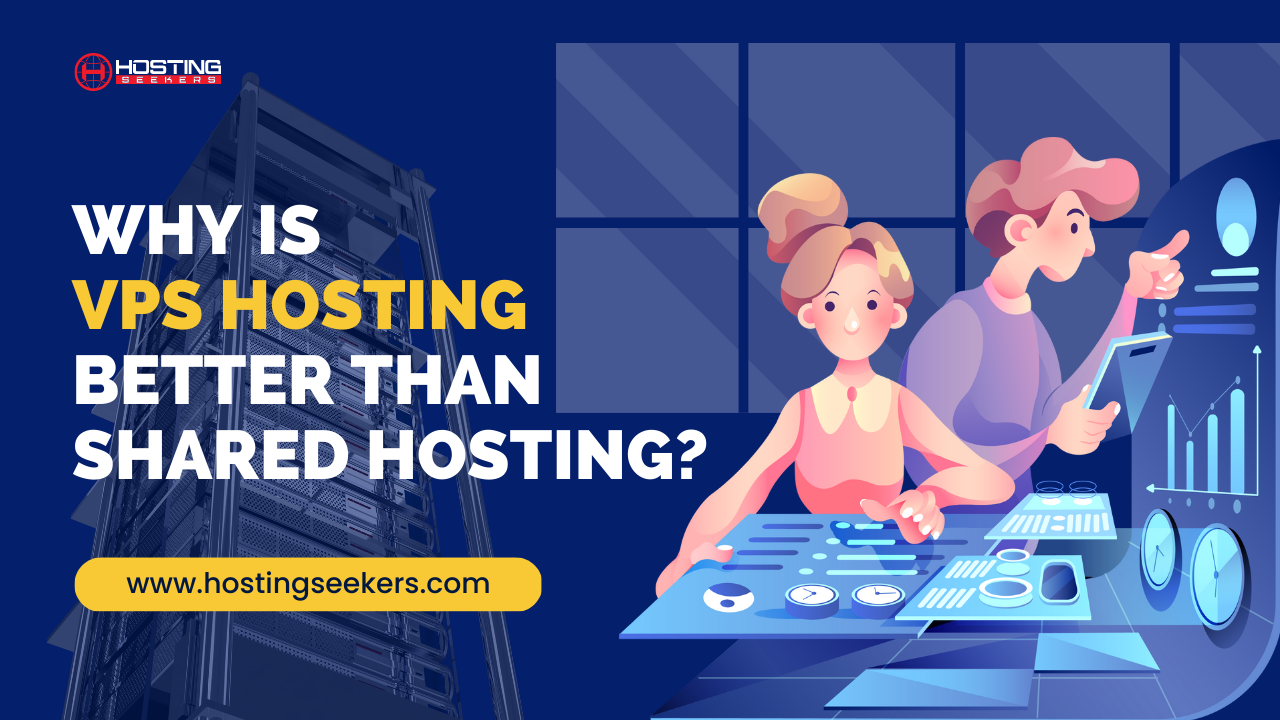
When it comes to hosting a website, one of the most important decisions you will make is choosing the right type of hosting for your needs. There are many options available, but two of the most popular are shared hosting and VPS hosting. While both of these options have their advantages and disadvantages, in this article, we will explore why VPS hosting services are generally considered to be better than shared hosting.
First, let’s define what shared hosting and VPS hosting are.
Shared hosting is when multiple websites are hosted on the same server and share their resources, such as CPU, RAM, and storage space. This type of hosting is usually the cheapest option available and is ideal for small websites with low traffic.
VPS hosting, on the other hand, stands for Virtual Private Server hosting. In VPS hosting, a physical server is divided into multiple virtual servers, each of which operates independently with its own operating system, dedicated resources, and access to a certain amount of storage and bandwidth.
Now let’s take a closer look at some of the key advantages of VPS hosting over shared hosting.
Better Performance
One of the most significant advantages of VPS hosting over shared hosting is the level of performance it offers. In shared hosting, resources are shared among multiple websites, which means that if one website experiences a sudden spike in traffic, it can affect the performance of all the other websites on the same server.
In contrast, VPS hosting provides dedicated resources for each website, which ensures that the performance is consistent and not affected by other websites on the server. This means that your website will load faster, be more responsive, and handle higher levels of traffic without any performance issues.
Greater Control and Flexibility
Another advantage of VPS hosting providers is that it provides greater control and flexibility compared to shared hosting. In shared hosting, the server is managed by the hosting provider, and you have limited control over the server environment and software configurations.
In VPS hosting, you have root access to your virtual server, which means you can install and configure any software you want and customize the server environment according to your needs. This level of control and flexibility is especially useful if you have specific software requirements or need to make customizations to your server environment.
Enhanced Security
Security is a major concern for any website owner, and VPS hosting offers enhanced security compared to shared hosting. In shared hosting, if one website on the server is hacked or infected with malware, it can potentially affect all the other websites on the same server.
In VPS hosting, each website operates independently with its own operating system and resources, which means that if one website is compromised, it will not affect the other websites on the same server. Additionally, VPS hosting providers typically offer advanced security features, such as firewalls, intrusion detection systems, and regular backups, to further enhance the security of your website.
Scalability
As your website grows and your traffic increases, you will need more resources to ensure that your website continues to perform optimally. In shared hosting, you are limited by the resources allocated to you by the hosting provider, and if you need more resources, you may need to upgrade to a higher-tier hosting plan or switch to a different hosting provider.
In VPS hosting, you have the flexibility to scale your resources up or down as needed, without the need to switch to a different hosting plan or provider. This means that you can easily adjust your server resources to accommodate changes in your website’s traffic and ensure that your website continues to perform optimally.
Improved Reliability
Finally, VPS hosting offers improved reliability compared to shared hosting. In shared hosting, if the server goes down or experiences technical issues, all the websites on the server are affected.
Conclusion
VPS hosting is undoubtedly a superior option when compared to shared hosting services for several reasons. VPS hosting offers greater control, flexibility, and customization options than shared hosting, making it the preferred choice for businesses that require more resources and better performance.
With VPS hosting, you can enjoy dedicated resources that are not shared with other users, which means you have more control over your server environment and can optimize it to meet your specific needs. VPS hosting also provides higher levels of security and reliability, which is crucial for businesses that rely heavily on their online presence.
Moreover, VPS hosting provides more flexibility in terms of scalability, allowing you to easily scale your resources up or down as your business needs change. This means that you can add more resources to your VPS server whenever you need them, and you only pay for what you use.
Although shared hosting can be an affordable option for small businesses or individuals just starting, it is not suitable for those who require more resources and reliability. Shared hosting resources are shared among multiple users, and if one website experiences a traffic spike, it can negatively impact the performance of all other websites on the same server.
In conclusion, VPS hosting is a cost-effective solution that offers the benefits of the best dedicated servers, without the high costs associated with it. VPS hosting provides a range of features that make it an attractive option for businesses that require more control, flexibility, and customization options. Ultimately, the choice between shared and VPS hosting will depend on your specific needs and budget. However, for most businesses, VPS hosting is the clear choice for reliable, scalable, and secure hosting.
https://www.linkedin.com/pulse/why-vps-hosting-better-than-shared-vibhati-sharma






